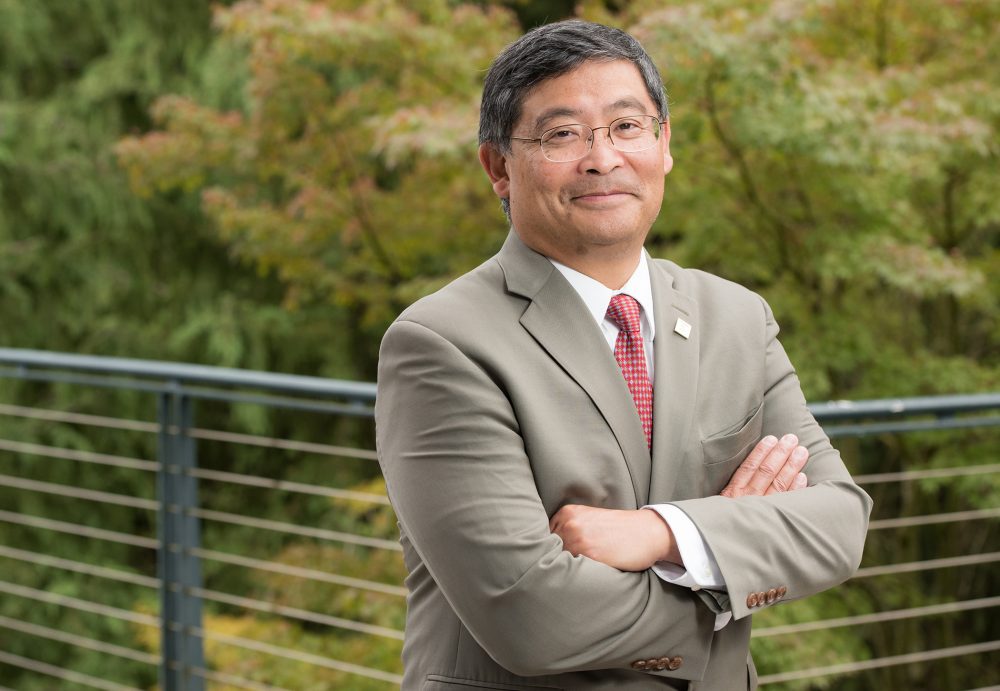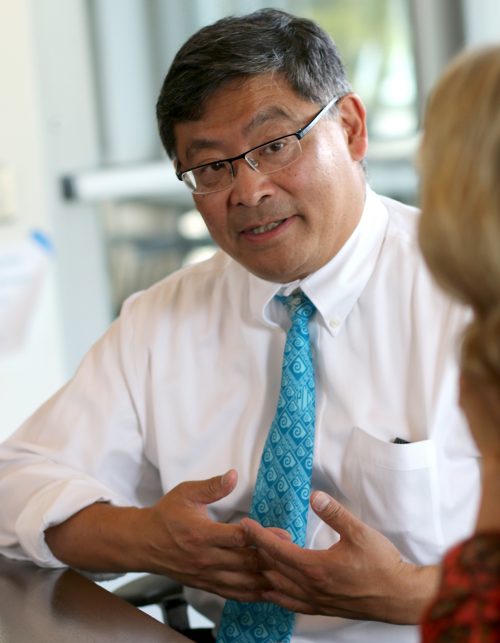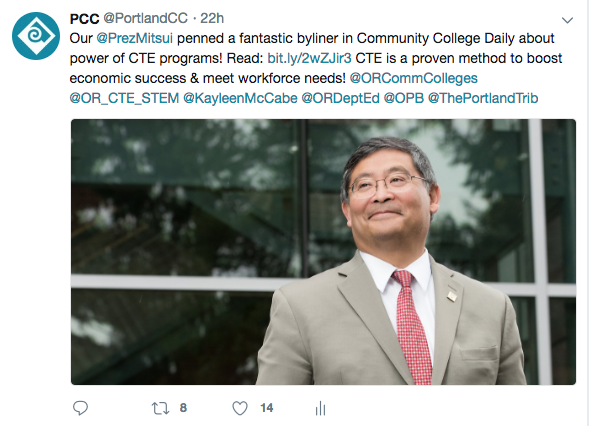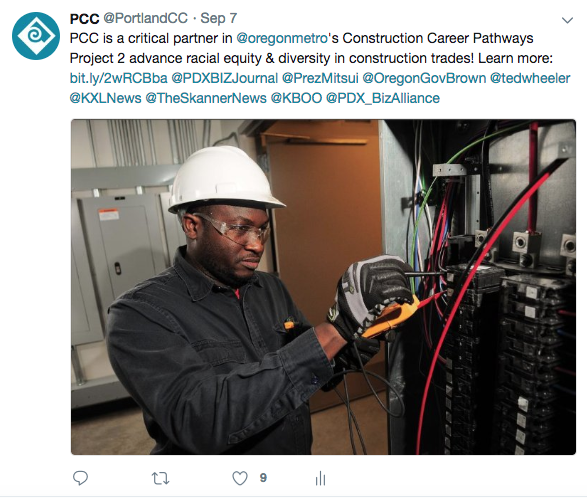This content was published: September 24, 2018. Phone numbers, email addresses, and other information may have changed.
Mark Mitsui anticipates a successful (and busy) 2018-19 year ahead
Photos and Story by James Hill
 For Portland Community College, education is a game-changer.
For Portland Community College, education is a game-changer.
The 2018-19 academic year has started, and there is much underway that impacts students and the people who work at PCC. Since President Mark Mitsui joined the college in September 2016, the institution has done a “deep dive” on data assessment while also talking with students, faculty, staff, administrators, employers and community leaders. The result: There’s more work ahead in order to make a lasting impact on the lives of PCC students.
“Paying greater attention to outcomes, thinking more about opportunity gaps and their relation to our structure and systems are important not only to us but also to our students and the communities they come from,” Mitsui said. “Our region depends on PCC to help keep it strong, diverse, and thriving. Our students’ success is not a singular effort; it is the culmination of all the moments of learning and relationships that a student has been a part of at the college.”
Equity for Students
The college has spent the past year prioritizing and building a plan for addressing equitable student success with the work of the new YESS Program, an Achieving the Dream-affiliated strategy that serves as an umbrella for engagement around many efforts at the college aimed at increasing student success. PCC has identified three focus areas for the next two years — building a foundation for Guided Pathways, supporting and implementing PCC’s commitment to diversity, equity and inclusion, and increasing data and technology capacity.
“I’ve been talking a lot about equitable student success this past year,” Mitsui said. “It is central to all that we do at the college. But it underlies an assumption: students do not share equitably in educational opportunities and outcomes. That is not a problem with students; it is a problem with our systems. We want to address the ways in which the college must change in order for all of our students — especially our students of color — to succeed.”
He said the Office of Equity and Inclusion has played a big part in shaping curricula and programs, recruitment and hiring practices, student support services, and in teaching and learning. The leaders within PCC’s Diversity Council provide programs and training, sponsor speakers, review policy, and coordinate many other activities in service of moving the organization forward in equity and inclusion.
“I believe it is our duty as a public community college, to reaffirm our core value: everyone deserves to learn and to improve their life through education,” he added. “We are working to make PCC’s doors more open and welcoming — this is who we want to be.”
The Budget and CTE
Student success ties into this year’s effort to advocate for a stronger state budget for community colleges, which enables education to be more equitable. Mitsui said the Office of Community Colleges and Workforce Development (CCWD) and Oregon Higher Education Coordinating Commission (HECC) are proposing $787 million for the 2019-21 biennium budget. As a result, the college’s government relations efforts are ramping up to coordinate meetings for the Board of Directors, campus presidents and students to meet with legislators and advocate for increased support for community colleges. The PCC community — from students to staff to faculty leaders — can help by volunteering for PCC’s Day at the Capitol on March 12 (to take part, email emma.kallaway@pcc.edu).
“The college must address a rapidly increasing and unfunded PERS liability, unfunded Federal mandates, and other fixed costs,” he warned. “The college instituted a hiring pause and engaged in a number of other cost-saving measures — all in a commitment to do everything possible to avoid layoffs. The past year has been a tough one. We’ve all been doing more with less, and I truly appreciate the work everyone has done.”
A critical part of that $787 million is $70 million to be put toward the expansion of career technical education. This funding will enable the state’s 17 community colleges to double the annual number of graduates in CTE programs by 7,900. Mitsui highlighted how the college and the state of Oregon are increasing CTE certificate completion and facilitating stronger wages locally. He said PCC has more than 1,600 employer partners that advise on curriculum, training practices and job skills to meet industry needs.
“One of the things we are really focused on is partnering with our employers to create more opportunity for students,” said Mitsui. “We are leveraging those partnerships for students as much as we can, but we still are not able to completely bridge the skills gap (without additional state funding).”
While You Were Away …
A lot has happened since the conclusion of the 2017-18 academic year. Here’s a recap of the most interesting news around PCC:
- Rock Creek Campus welcomed new president Chris Villa.
- Switzerland ambassador Simon Marti visited PCC’s Swan Island Trades Center.
- Once again, PCC hosted Jade Market Night at Southeast Campus.
- ThinkBIG alum gets highest ever mark at international diesel competition.


